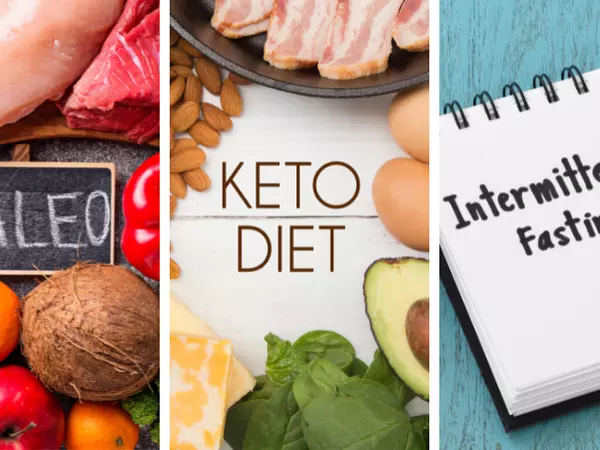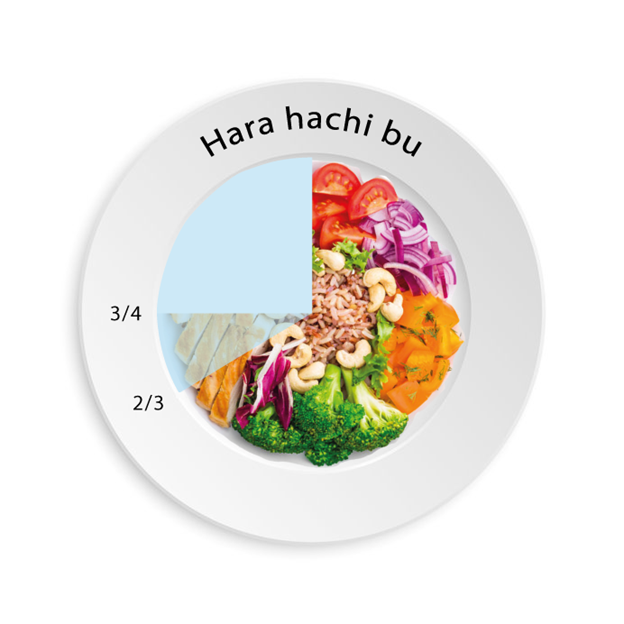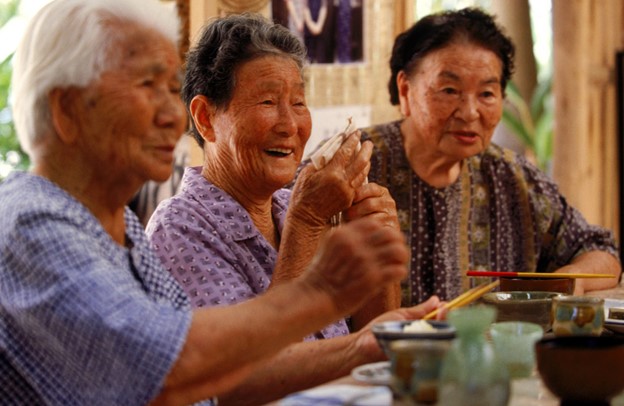Want Improved Health and Sustainable Weight Loss? Follow the 6-S Eating Plan!
From national newspapers to personal blogs, nutrition articles are everywhere. Such a constant stream of information can make it difficult for readers to distinguish reliable research from weak studies and sensational headlines. Nutrition research is complex, and is often oversimplified by the media.

And then after enough of media hype around a certain miracle food or diet type, along comes a cookbook built around these various theories. And so “blown by every wind of doctrine” we rush out to buy the latest book on the most true, revolutionary diet plan.
I’m not here to criticize any particular diet regime, or recommend one over another. But I do want to share something I’ve lived by for over 40 years. It’s a beautiful approach to eating because it’s simple, filled with common sense, and backed by years and years of science.
I call it the 6-S Plan. It’s been my path to improved health and sustainable weight loss, without fail. No matter what your diet plan preference is (Keto, Paleo, Gluten Free, Counting Macros, intermitent fasting, meat-based, plant-based, etc.) this approach fits. It’s just a framework around eating. You eat:


Other research suggests you also sit down to eat, as opposed to “grazing” or eating on the run. While sitting down, your body is more likely to consume less food because you're more conscious of what you're consuming.
And then there’s the Okinawan tradition of Hara Hachi Bu, which means you stop eating when you’re 80% full. This is eating in moderation. There is a significant calorie gap between when an American says, ‘I’m full’ and an Okinawan says, ‘I’m no longer hungry.’

For almost a thousand years, the Japanese archipelago of Okinawa has maintained a reputation for nurturing extreme longevity. Okinawans over the age of 65 enjoy the world’s highest life expectancy: Men are expected to live to about 84, while women are expected to live to age 90. They suffer only a fraction of diseases that kill Americans: a fifth the rate of cardiovascular disease, a fifth the rate of breast and prostate cancer, and less than half the rate of dementia seen among similarly aged Americans.

So whether you’re entrenched in the Keto diet, the Macro diet, the carnivore diet, the plant diet, or any other diet that will surely pop up, support it with the above small changes. The overall goal is sustainability, and small changes tend to be the most sustainable.

And then after enough of media hype around a certain miracle food or diet type, along comes a cookbook built around these various theories. And so “blown by every wind of doctrine” we rush out to buy the latest book on the most true, revolutionary diet plan.
I’m not here to criticize any particular diet regime, or recommend one over another. But I do want to share something I’ve lived by for over 40 years. It’s a beautiful approach to eating because it’s simple, filled with common sense, and backed by years and years of science.
I call it the 6-S Plan. It’s been my path to improved health and sustainable weight loss, without fail. No matter what your diet plan preference is (Keto, Paleo, Gluten Free, Counting Macros, intermitent fasting, meat-based, plant-based, etc.) this approach fits. It’s just a framework around eating. You eat:

- Sugar FREE (meaning refined sugars—donuts, cake, cookies, ice cream, candy, pie, etc.)
- Small (meaning portion sizes, which is easier to do if you use small vessels)
- Slow (meaning your pace of eating; studies show that when you eat slowly, calorie consumption decreases than if you were to eat faster)
- Selective (meaning focusing most on nutrient-dense foods)
- Savoring (meaning in gratitude, tasting each bite, noticing textures, flavors, etc.)
- Six or before (meaning time of last meal; eating early allows for the body to digest your food enough before bedtime, which will then support a good night’s sleep)

Other research suggests you also sit down to eat, as opposed to “grazing” or eating on the run. While sitting down, your body is more likely to consume less food because you're more conscious of what you're consuming.
And then there’s the Okinawan tradition of Hara Hachi Bu, which means you stop eating when you’re 80% full. This is eating in moderation. There is a significant calorie gap between when an American says, ‘I’m full’ and an Okinawan says, ‘I’m no longer hungry.’

For almost a thousand years, the Japanese archipelago of Okinawa has maintained a reputation for nurturing extreme longevity. Okinawans over the age of 65 enjoy the world’s highest life expectancy: Men are expected to live to about 84, while women are expected to live to age 90. They suffer only a fraction of diseases that kill Americans: a fifth the rate of cardiovascular disease, a fifth the rate of breast and prostate cancer, and less than half the rate of dementia seen among similarly aged Americans.

So whether you’re entrenched in the Keto diet, the Macro diet, the carnivore diet, the plant diet, or any other diet that will surely pop up, support it with the above small changes. The overall goal is sustainability, and small changes tend to be the most sustainable.
 Alice Osborne
Alice Osborne
Weekly Newsletter Contributor since 2006
Email the author! alice@dvo.com
